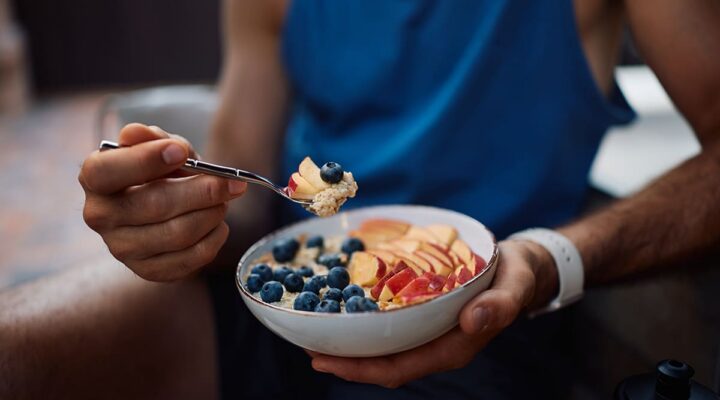10 Commandments To Help Promote Healthy Ageing
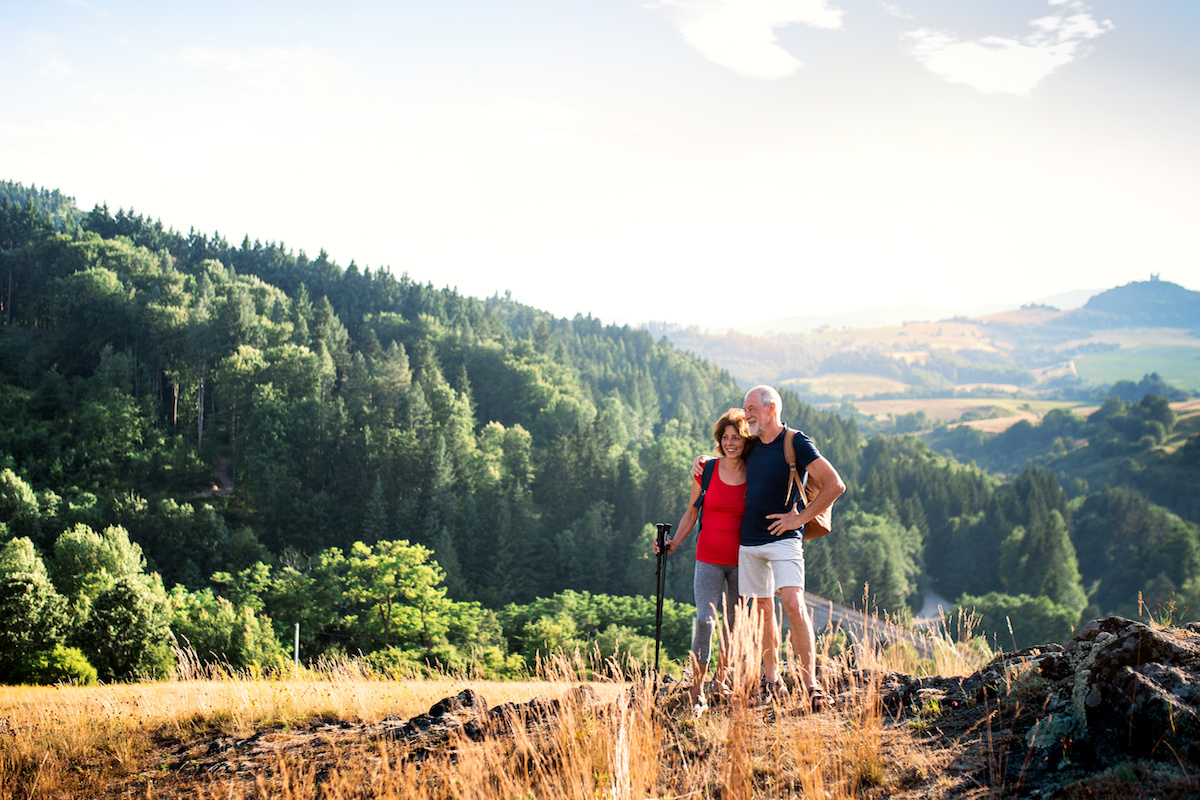
There are millions of anti-ageing products out there for our skin, but have you ever wondered what we can do to slow down ageing from the inside? Healthy ageing is not about preventing the inevitable, rather how we can optimise our health so that we can do the things we love for as long as we can.
The ageing process can be accelerated by the food we eat, our lifestyle choices and our work life, however, the 10 tips below should get you back to looking and feeling younger than ever.
10 Ways To Ease The Ageing Process
Eat Until You Are 80 Percent Full
Japan has one of the highest life expectancies in the world, and one of the lowest rates of heart disease, cancer and stroke. A common notion they live by is ‘Hara Hachi Bu’, meaning ‘eat until you are 80 percent full’.
Of course, this is an estimate, and cannot be perfectly measured every time, but it encourages us to fill our plates with only 80 percent of what we would usually eat to feel full.
The idea that this way of eating may lead to an increased lifespan is not surprising, as eating till you are 80 percent full would mean having fewer calories, which has been proven to lead to reduced body weight, lower cholesterol and an extended life span in humans and primates (1)(2)(3).
Get More Sun
Moderately exposing yourself to the sun not only leads to happy feelings and improves immunity, but it can also prevent the loss of muscle mass as we age.
We get the majority of our vitamin D from the sun, and studies have shown that individuals with low Vitamin D levels are twice as likely to get sarcopenia (loss of muscle mass, strength and function) in old age.
This is likely to be because vitamin D helps to facilitate muscle metabolism and muscle growth. Sun exposure for 10-20 minutes a day is enough to get a sufficient amount of vitamin D, and always wear sunscreen to avoid skin ageing.
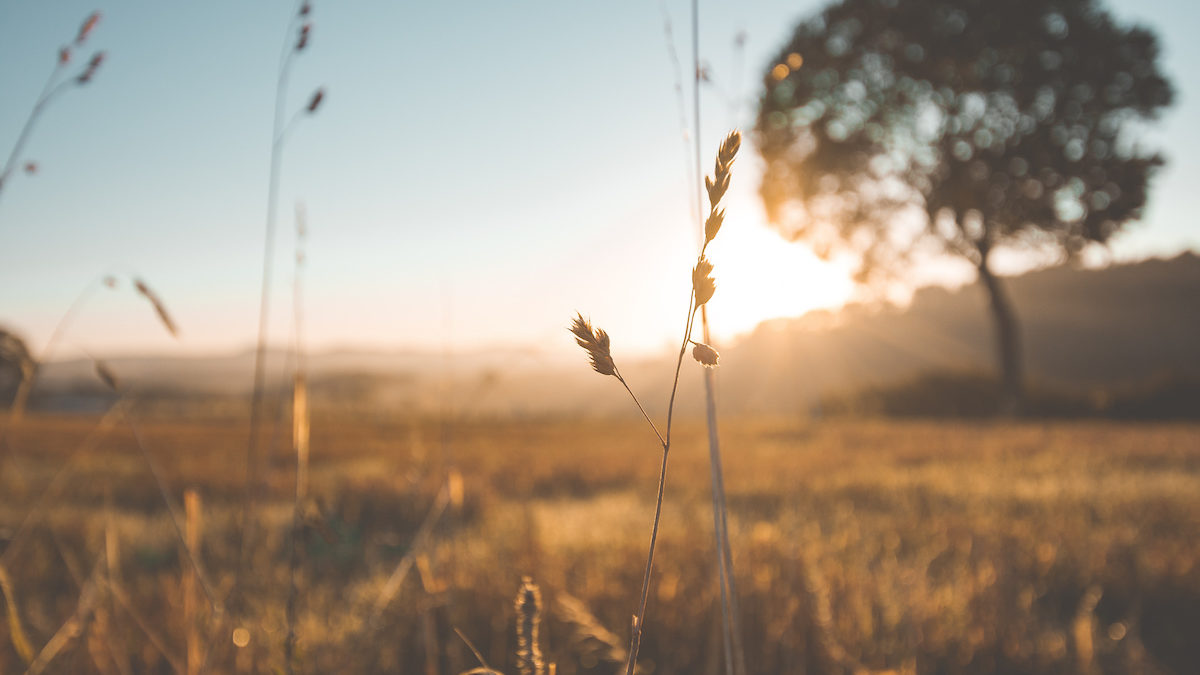
Eat Foods High In Vitamin C
Vitamin C stabilises the collagen in our skin, which is the ‘fatty’ part of our skin that keeps us looking healthy and young. Collagen naturally deteriorates with age, but is broken down more quickly on direct, prolonged exposure to the sun, and through eating foods high in sugar or meats cooked at high temperatures (4).
Vitamin C is one of the most effective antioxidants at promoting collagen formation in the skin and protecting against UV-induced damage. Foods highest in Vitamin C include kiwi, bell peppers, oranges and papaya.
Try Alternate Day Fasting
Alternate day fasting is fasting every other day. A moderated version of this is eating 400-600 calories on fast days. On normal days you can eat whatever you want. Alternate day fasting increases your body’s resistance to toxins, as the body switches to using fats and ketones as its main energy source, which reduces chemotoxicity in the body.
A four-week study found that it also significantly reduces the visceral fat in your body, which is the fat that accumulates around your internal organs and is the most dangerous. The subjects in this study also became leaner, decreasing their fat to lean ratio. This type of fasting may seem daunting at first, but the youth-boosting effects are sure to keep you feeling fitter than ever.
Try Going Plant-Based
Plant-based diets are rich in fruits, vegetables, whole grains, legumes, nuts, seeds, herbs and spices, and reduce or completely eliminate foods derived from animals. The evidence shows that that vegetarians have a 32% lower risk of heart disease than non-vegetarians, and plant-based diets are associated with lower rates of age-related diseases.
If you have thought about going plant-based but worry about nutrient deficiencies, such as not getting enough protein, soy protein is a great way to keep protein levels up with 25g of soy protein a day also proven to significantly reduce cholesterol. On top of this, the isoflavones in soy have an antioxidant effect and decrease oxidative damage, which is associated with ageing (5).
Meat is one of the top foods for causing ageing in the skin, especially when it is cooked at high temperatures, so trying to reduce animal foods is a good way to maintain health-span from the inside out.
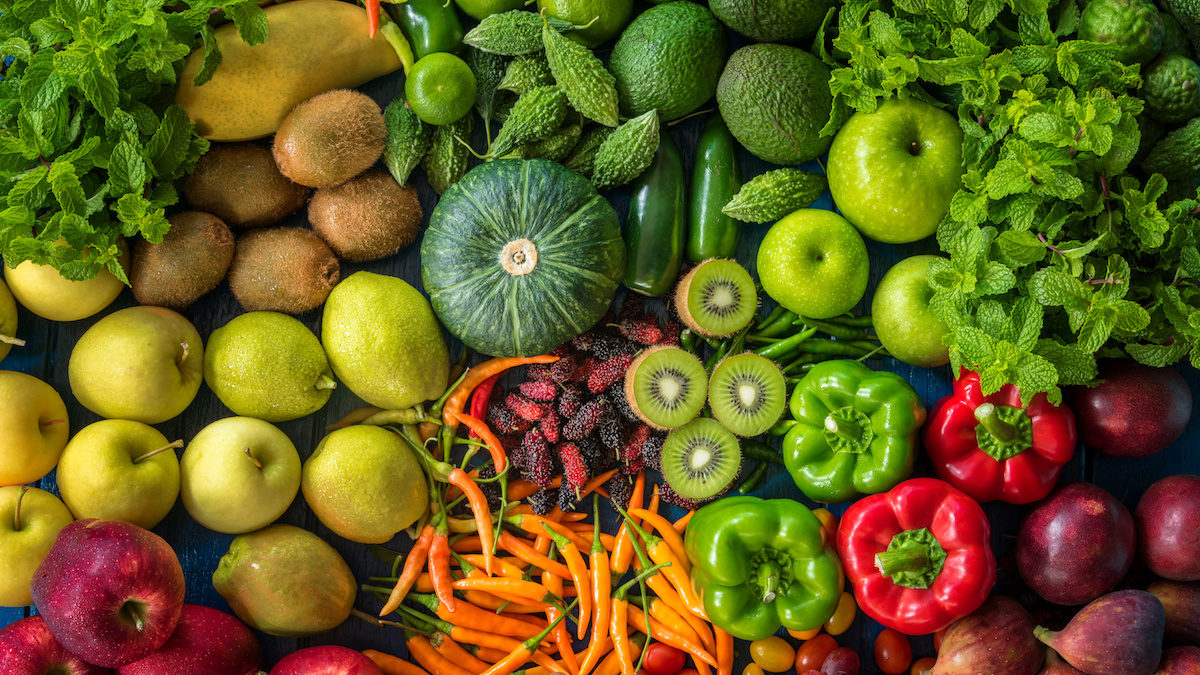
Avoid Stress
Coming across stressful situations in life is inevitable, however repetitive and prolonged exposure to stress damages the hippocampus (part of the brain that is responsible for learning and memory), causing an increased risk of dementia and poor sleep regulation.
Trying 10 – 20 minutes of meditation every morning is a good way to let go of stressful thoughts and start the day with a positive mindset. Another way to reduce stress is by journaling your thoughts and feelings at night. This can help diffuse any negative thoughts and can bring clarity about how you might be feeling about a certain situation.
Take Up A New Hobby
As we age, we lose neurons in our brain, and most neurons also shrink with age, meaning our brain shrinks with age. This can lead to mild cognitive impairment, which is prevalent in 10 – 20 percent of adults over the age of 65, and this can later progress to dementia.
Even as adults our brain is always ‘plastic’, and can form new neurons, known as neurogenesis. Taking up a new hobby or learning a new skill activates neurogenesis and improves cognitive functioning, keeping our brain active and young. Whether it be playing tennis, learning to bake or painting, it is never too late to take up a new hobby.
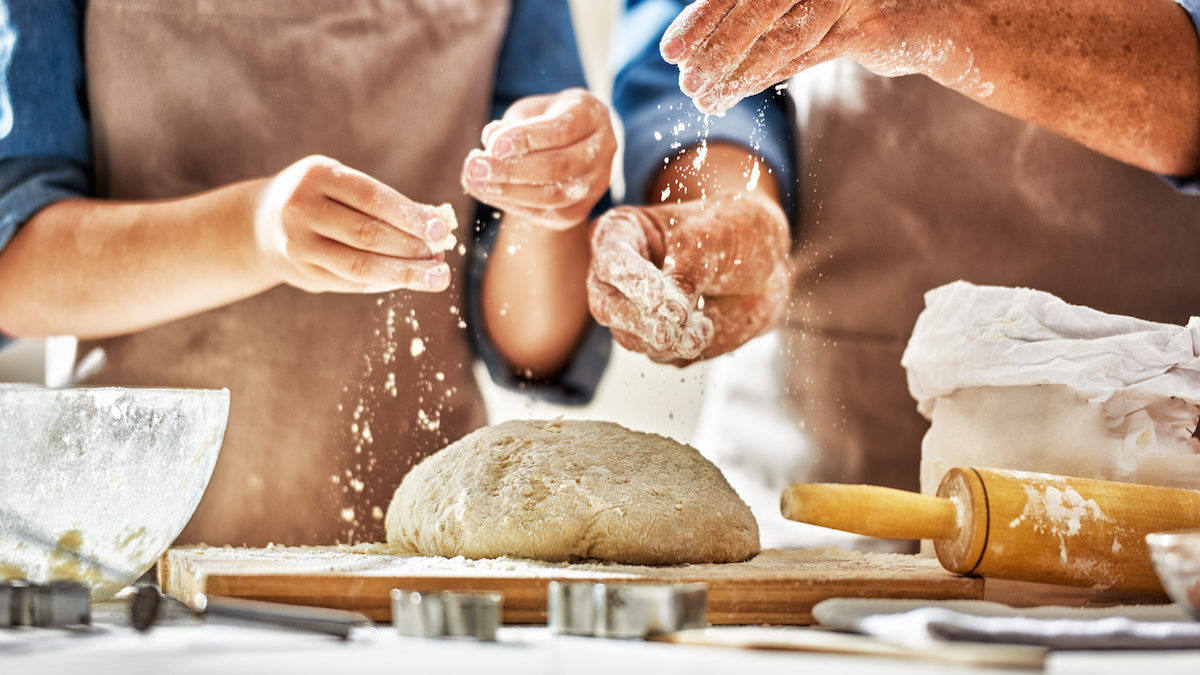
Eat More Blueberries
Blueberries also have a mind-enhancing effect and have been found to increase the number of neurons in our brain similarly to learning a new skill. They are enriched with antioxidants, while a 2010 study found that daily supplementation with blueberries improves memory in older adults. The perfect addition to any smoothie or protein shake, they also make a convenient snack throughout the day.
Go On A Daily Walk
Walking is something nearly all of us have embraced during the pandemic. It helps to clear the mind and increases the serotonin production in the body, making us feel happy. However there is also a less known benefit of walking; it also boosts the neurogenesis in the brain, making us more focused, and improving our learning and memory ability.
It is particularly low intensity walking that has been proven to increase hippocampal brain volume (6), and the longer and more frequent the walks the better.

Do Weight Bearing Exercise
Osteoporosis is the weakening of bones in older age and affects 3 million people in the UK. It is more likely to affect women after menopause, as the drop in oestrogen causes the bones to become more fragile. It has been found that weight-bearing exercises such as squats, bench presses, and step-up exercises improve bone strength and bone mineral density more than exercises that are non-weight-bearing such as swimming and cycling (7).
These exercises don’t have to just be limited to the gym however, even dancing, walking and gardening are classified as weight-bearing and are the perfect way to both keep fit and enjoy the sun this summer. As the ancient Greek physician, Hippocrates once said: “That which is used develops, and that which is not used wastes away. If there is any deficiency in food or exercise the body will fall sick.”
If you would like to know what your diet might be lacking, or how to incorporate more youth-boosting foods into your diet, you can book an appointment with nutritionist and anti-ageing specialist, Ishika Sharma, at ishikasnutrition.com
References
1. Redman LM, Smith SR, Burton JH, Martin CK, Il’yasova D, Ravussin E. Metabolic Slowing and Reduced Oxidative Damage with Sustained Caloric Restriction Support the Rate of Living and Oxidative Damage Theories of Aging. Cell Metabolism. 2018 Apr 3;27(4):805-815.e4.
2. Dorling JamesL, Das SKrupa, Racette SusanB, Apolzan JohnW, Zhang Dachuan, Pieper CarlF, et al. Changes in body weight, adherence and appetite during 2 years of calorie restriction: The CALERIE 2 randomized clinical trial. Eur J Clin Nutr. 2020 Aug;74(8):1210–20.
3. Mattison JA, Roth GS, Beasley TM, Tilmont EM, Handy AM, Herbert RL, et al. Impact of caloric restriction on health and survival in rhesus monkeys from the NIA study. Nature. 2012 Sep;489(7415):318–21.
4. Goldberg T, Cai W, Peppa M, Dardaine V, Baliga BS, Uribarri J, et al. Advanced glycoxidation end products in commonly consumed foods. Journal of the American Dietetic Association. 2004 Aug 1;104(8):1287–91.8. Crowe FL, Appleby PN, Travis RC, Key TJ.
5. Wong MCY, Emery PW, Preedy VR, Wiseman H. Health benefits of isoflavones in functional foods? Proteomic and metabonomic advances. Inflammopharmacology. 2008 Oct;16(5):235–9.
6. Varma VR, Chuang Y, Harris GC, Tan EJ, Carlson MC. Low-intensity daily walking activity is associated with hippocampal volume in older adults. Hippocampus. 2015 May;25(5):605–15.
7. Shanb AA, Youssef EF. The impact of adding weight-bearing exercise versus nonweight bearing programs to the medical treatment of elderly patients with osteoporosis. J Family Community Med. 2014;21(3):176–81.



